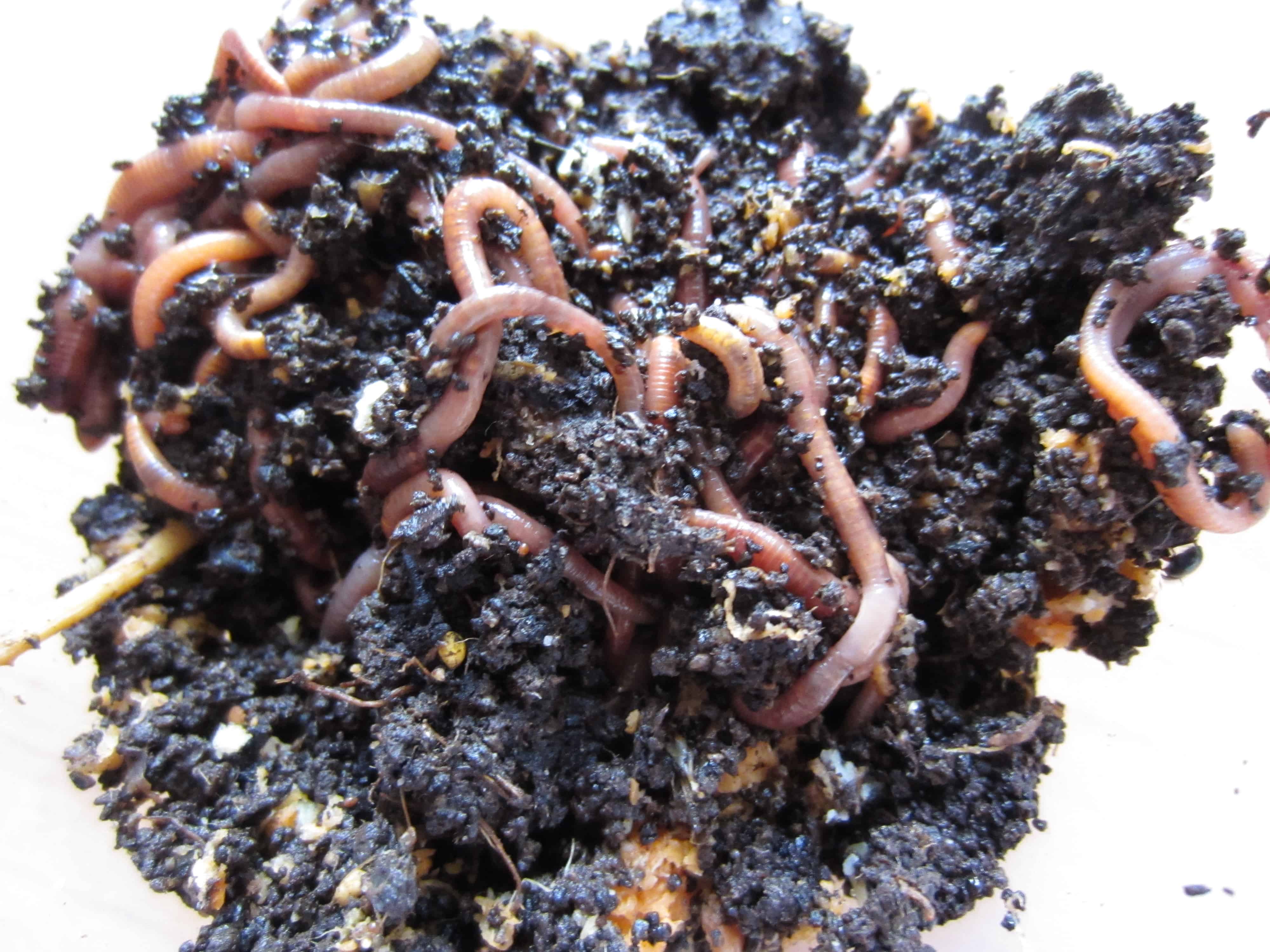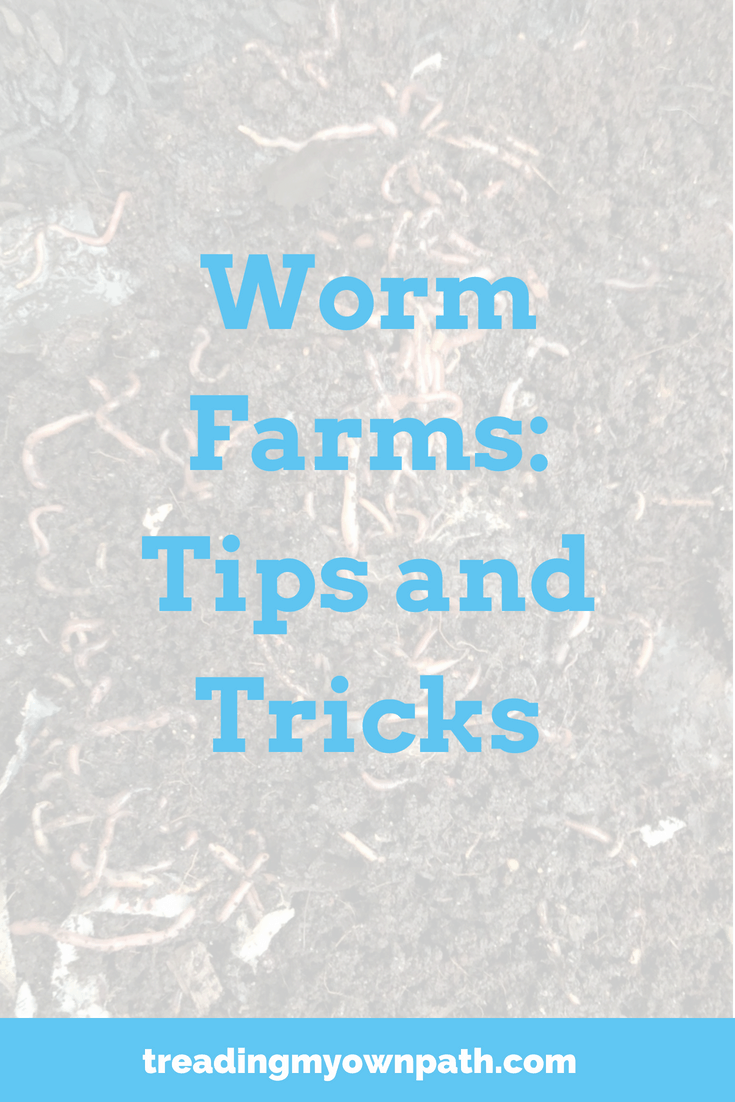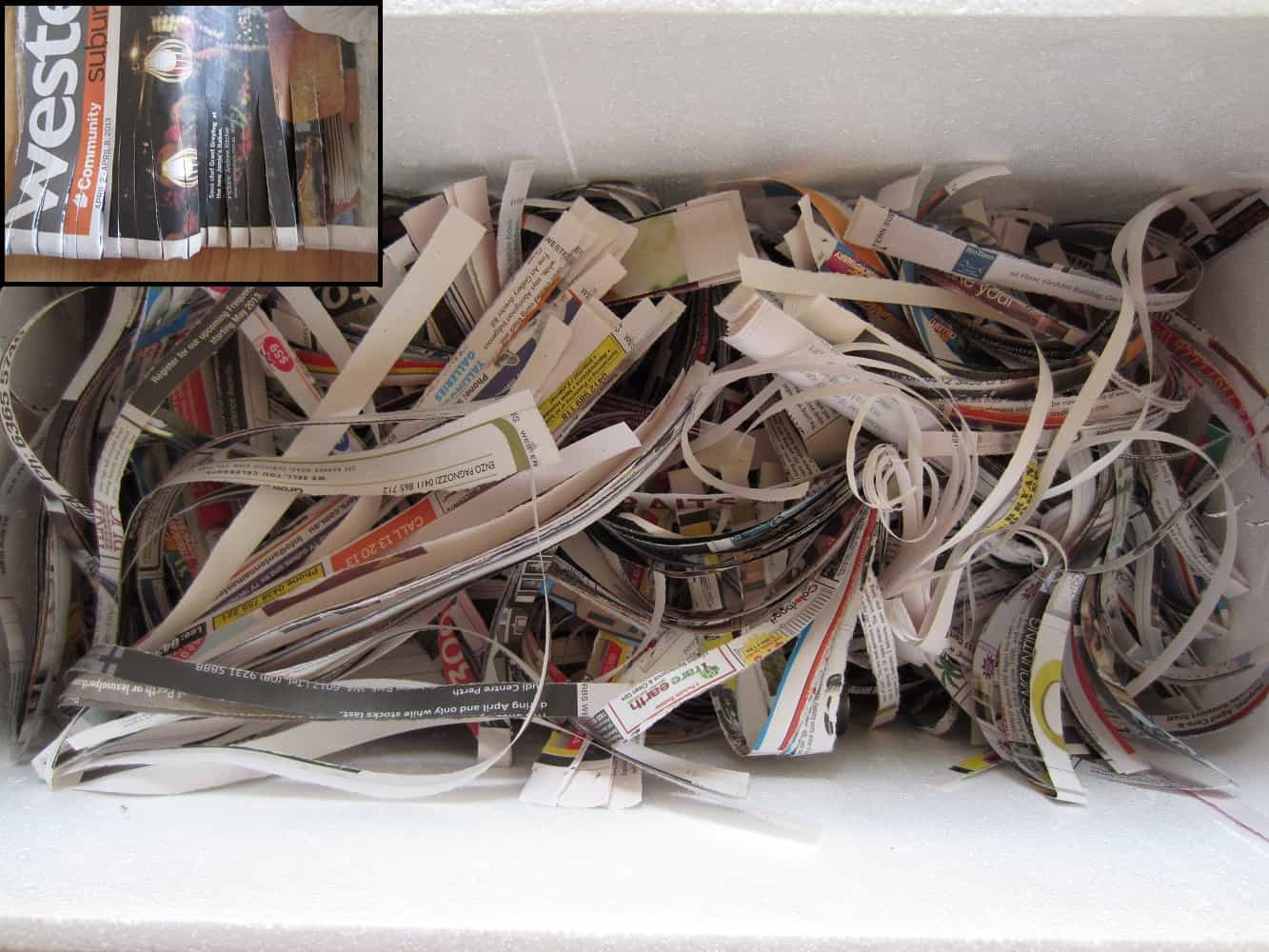Worm Farms…Tips and Tricks
After writing my post yesterday on how to build a DIY worm farm, I thought it might be useful to write another post explaining how to look after your worms, and also provide some reasons why you might consider worm farming in the first place.
In their National Waste Policy fact sheet, the Australian Government estimate that two-thirds of waste sent to landfill is organic. If you’re not sure what I mean by organic, it’s the waste that originally came from plants and animals which can be broken down. As well as the obvious grass clippings, food scraps and bones, this includes cardboard, paper and wood. In 2006-2007, Australians landfilled almost 14 million TONNES of organic waste. A full garbage truck holds 10 tonnes. Sending all that organic waste to landfill meant an extra 1.4 million garbage trucks on our roads. Even if you think Australia’s got the space, that’s a lot of unnecessary heavy road traffic, not to mention fossil fuel burning and airborne pollutants via vehicle emissions.
Next up, soil quality. Australia has some of the oldest land masses on Earth, and consequently they are nutrient-poor and with little organic matter. Perth has some of the worst agricultural soils in the world. (Someone once told me that it was officially the poorest soil in the world, but I can’t find anything that confirms it. However, ask anyone who ever tried to grow anything in the soil in Perth, and they’ll confirm it for you!) The sandy soil repels water and also nutrients. If you want to grow plants in Australia, you need to improve your soil by adding organic matter. And this is where the worms come in!

Worms and their castings. Castings are the product created when worms break down organic matter, and contain nutrients that plants can uptake easily.
Worms eat organic waste and break into down into a product called castings. These castings contain beneficial nutrients that can easily be absorbed by plants. Their texture also enables them to retain water and so they are great for improving soil structure. And they won’t burn plants, as some chemical fertilizers do. Castings are also suitable for seedlings. Worms also produce a liquid that needs to be drained – worm wee! (Or more technically, leachate.) Some tips on using worm wee are provided below.
And keeping worms is fun! It’s free, they require very little maintenance, meaning you can go on holiday for weeks and they will still be alive on your return – how many pets can you say that about?

Tips & Tricks
So I’ve made the case for reducing fossil fuels, reducing landfill, improving your garden and having fun…so what’s keeping you from getting your own worm farm? Is it any of these?
1. Worm Farms smell.
Actually, they don’t smell if you look after them properly. Castings have an organic smell similar to the earthly smell of soil. The main cause of smelliness is too much food. It can be tempting once you set up your worm farm to add every single scrap of food to it immediately, but worms only eat their body weight in food every day, so you need to start small and increase the food once the worm numbers build up.
2. I don’t have a garden.
Neither do I! The worm farm takes up only a very small amount of space, and it will take several months to fill up the worm farm with castings. You can use them with house plants or pot plants and even if you don’t garden, you are bound to know someone who does so just give them the box of castings once it is full.
3. I don’t have time.
Seriously, how much time do you think you need?! Once the worm farm is set up, all you do is empty your food scraps that you would have thrown in the bin into the worm farm. It helps to have the worm farm nearby – if it’s located at the bottom of the garden you are far less likely to make the trip.
Problem-Solving
This is by no means an exhaustive list, but hopefully covers some of the more common problems that you might encounter.
My worm farm smells
Likely cause: too much food
Solution: STOP ADDING FOOD! Give the worms a chance to eat what they already have. Anaerobic conditions (no oxygen) can also cause this so give the top layer a stir to aerate.
My worms are escaping
Likely cause: If it is only a couple of worms, there is probably not an issue. If there is a mass exodus, then there may be too much moisture or too much food.
Solution: Add newspaper to reduce the moisture levels, and stop feeding if there are large amounts of uneaten food.
I have other pesties in my worm farm
Likely cause: Not all insects in your worm farm are problems, and you should expect to find other creatures making their home here. But some pests indicate problems.
Solution: Burying food should keep unwanted pests at bay. Flies indicate there is too much food, so reduce the feeding. Ants indicate that the conditions are too dry, so add water.
Other Things to Know
- You need to use composting worms for your worm farm – varieties such as red worms or tiger worms, as these are adapted to the conditions of a worm farm, whereas ordinary earthworms are not.
- Worms prefer cooler conditions so on a very hot day, add an ice pack above the worm blanket to keep the inside of the worm farm cool. However, freezing will kill them! (This is not a problem we have here in Perth but may be an issue in cooler climates.) If you are expecting a frost, bring the worm farm indoors.
- Worms do not have teeth, but suck in food. The smaller the food particles are, the more they can eat. Blending or chopping helps, but if you can’t be bothered, freezing the food then allowing to thaw will help break down the cell walls and make it easier for your worms. And if you can’t manage that, just try to bury your food so it doesn’t attract pests.
- Worms don’t like acidic conditions and don’t like acidic food such an onions and citrus. Avoid giving these to your worms.
Worm Wee vs Worm Tea
You may come across references on the internet to both worm wee (leachate), and worm tea. The two names are often mistakenly used interchangeably, but they refer to different products. Leachate is what drains from the worm farm. Worm tea is a product made using castings, water and molasses, which are “brewed” for 24-48 hours. The main difference is that worm tea is aerobic, and so great for plants, whereas leachate can be anaerobic.
Leachate is fine to add to compost, but if your leachate is anaerobic it may harm your plants. I learnt this the hard way, diluting my leachate to a 1:10 ratio (1 part leachate for 10 parts water) and pouring on my seedlings, which caused them all to go yellow and die.
The way my worm farm is designed, my leachate does not have much contact with air and so will always be anaerobic. If your leachate drains freely into an open container it will probably be aerobic. You can try to aerate your leachate by diluting and exposing to air for a couple of days before using. However, always exercise caution when using on plants. Make sure you dilute 1:10 with water, and avoid using on seedlings, house plants or other temperamental plants.
[leadpages_leadbox leadbox_id=1429a0746639c5] [/leadpages_leadbox]







Thanks for the info. Is it important to move the worms to new soil at some point? If so how often and how can you tell? Thanks.
Hi Kyle, the worms don’t need to be moved to new soil, no. They will live happily in their castings. You will need to replace the bedding eventually as it will get broken down. As long as there is no smell, no large amounts of other pests and the worms aren’t trying to escape, then the conditions are right and they’ll be happy.
Thanks for the info. Found you after starting from scratch with two storage bins and harvesting random worms while weeding. They seem to be doing well and propagating. Appreciate your info regarding tea and pee. I add the pee in pure form to my house plants with no ill effects so far but will have more caution after reading this. True what say about it being fun. My kids live it! I’m finding myself spending probably too much time with my worms…
Hi Lindsay, thank you for sharing this! I’m about to start my first worm farm using two buckets so it’ll have a similar design to the one in the post: I’m just a bit confused on how to harvest the worm casting.. won’t it be ‘stuck’ under the worms? also… I do have a compost pile that is always full of worms.. do you think I could move some of these to the farm and get it going like that??? thank you for your help!
I have a worm farm a friend didn’t want. There a 6 round pieces , ashould I keep building up or is the one enough. Thank you in advance
Do worms like animal hair
My worm farm was a great source of drainage which I diluted and put on the plants but over the last few months there isn’t any drainage despite plenty of worms. Renal failure! I have cleaned it all out, there is no physical blockage. Any answers here please? Thank you.